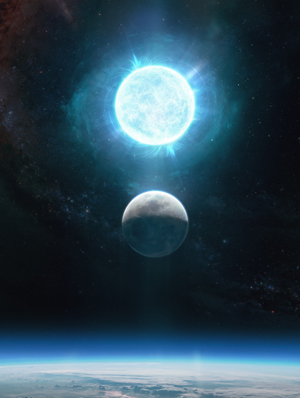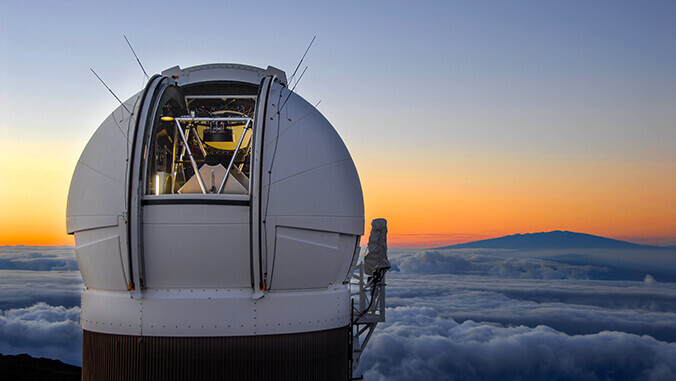
Astronomers are revelling at the discovery of a white dwarf that is the largest ever seen. White dwarfs are the collapsed remnants of stars, and this latest find is roughly the size of the Moon and 1.35 times more massive than the Sun. Researchers at the Zwicky Transient Facility at Caltech’s Palomar Observatory made the discovery. To help characterize the dead star, astronomers turned to the W.M. Keck Observatory on Maunakea and University of Hawaiʻi’s Pan-STARRS (Panoramic Survey Telescope and Rapid Response System) on Haleakalā, Maui.
In 2016, Pan-STARRS released the world’s largest digital sky survey enabling access to millions of images and catalogs containing precision measurements of billions of stars and galaxies. That data helped researchers estimate the temperature of the white dwarf and its radius.
“We have enabled astronomers all over the world to continue to make new discoveries,” said Ken Chambers, director of Pan-STARRS Observatories. “This discovery of a highly magnetized and rapidly rotating white dwarf, is one of many, many examples of just how scientifically useful the Pan-STARRS1 Survey has become to the scientific community.”
Using Keck Observatory’s low-resolution imaging spectrometer, the team realized the sheer power of the star’s magnetic field. According to astronomers, the white dwarf’s extreme magnetic field is almost one billion times stronger than the Sun’s and whips around on its axis at a frenzied pace.
Ilaria Caiazzo, a researcher at Caltech is the lead author of the new study based on the white dwarf. The newly discovered object’s size is also considered small in size.
“It may seem counterintuitive, but smaller white dwarfs happen to be more massive,” Caiazzo said. “This is due to the fact that white dwarfs lack the nuclear burning that keep up normal stars against their own self gravity, and their size is instead regulated by quantum mechanics.”
Researchers suspect that the merged white dwarf may be massive enough to evolve into a neutron-rich dead star, or neutron star, which typically forms when a star much more massive than our Sun explodes in a supernova.
For more information go to Keck Observatory’s website.


